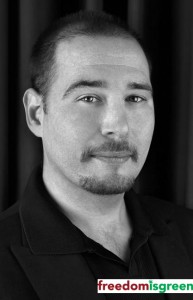6/6/2011 – Governor Pete Shumlin is keeping Vermont on a steady course to open medical cannabis dispensaries amidst a recent storm of federal activity. Seriously ill residents can already cultivate at home or through a caregiver, now Shumlin has signed a law that will attempt to implement a small medical cannabis system in 2012.
Sue Allen, Communications Director for Gov. Shumlin, spoke with Freedomisgreen about the careful approach right now in the Green Mountain State.
“We were keenly aware of the federal government’s position,” Allen said. “We received a letter from the US Attorney‘s office.”
Tristiam Coffin of Vermont joined US Attorneys in eight states in sending harsh letters to local officials about cannabis dispensaries.
But on June 2nd – the very same day that the bill was signed Vermont – US Attorney General Eric Holder made statements on a visit in Rhode Island hinting that the US Department of Justice would work with states to open heavily regulated medical cannabis facilities.
Allen said it was a coincidence, “We moved forward with the bill, signed it on schedule and as-planned.”
Still, Gov. Shumlin has been keeping a close eye on things from Montpelier.
“We have been in touch with other states that are going through this right now,” added Allen.
When asked which states they were looking to for insight she replied; “East Coast states; Rhode Island.”
Some final regulations still need to be crafted but Vermont’s four medical marijuana dispensaries could be open in about one year.
Allen pointed out an interesting innovation: the VT Department of Public Safety will be the oversight entity for the program. In other states the medical cannabis programs are under the Departments of Health.
“Public Safety recently took over the DUI testing program,” Allen noted. “They deal more with enforcement issues.”
Various state divisions, such as the Department Law and Public Safety in New Jersey, are key players in crafting regulations and implementing medical marijuana laws. But Vermont will be the first state with a medical marijuana program controlled by the same entity that directs the State Police.
Allen also said that Governor Shumlin understood the issue from many personal contacts.
“We’ve had medical marijuana for over a year and he knows that this law is important. I can’t tell you how many people came up to him on the campaign trail and asked about medical marijuana. These were older folks too, grandparents.”
Vermont joins Delaware, Maine, Rhode Island, New Jersey and the District of Columbia in actively regulating medical marijuana dispensaries on the East Coast.

Chris Goldstein is a respected marijuana reform advocate. As a writer and radio broadcaster he has been covering cannabis news for over a decade. Questions? [email protected]




